The Lost Symbol Read online
Page 8
“Trish Dunne?” a woman’s voice asked politely.
“Yes, who’s calling, please?”
“My name is Katherine Solomon.”
Trish almost fainted on the spot. Katherine Solomon? “I just read your book — Noetic Science: Modern Gateway to Ancient Wisdom — and I wrote about it on my blog!”
“Yes, I know,” the woman replied graciously. “That’s why I’m calling.”
Of course it is, Trish realized, feeling dumb. Even brilliant scientists Google themselves.
“Your blog intrigues me,” Katherine told her. “I wasn’t aware metasystems modeling had come so far.”
“Yes, ma’am,” Trish managed, starstruck. “Data models are an exploding technology with far-reaching applications.”
For several minutes, the two women chatted about Trish’s work in metasystems, discussing her experience analyzing, modeling, and predicting the flow of massive data fields.
“Obviously, your book is way over my head,” Trish said, “but I understood enough to see an intersection with my metasystems work.”
“Your blog said you believe metasystems modeling can transform the study of Noetics?”
“Absolutely. I believe metasystems could turn Noetics into real science.”
“Real science?” Katherine’s tone hardened slightly. “As opposed to…?”
Oh shit, that came out wrong. “Um, what I meant is that Noetics is more… esoteric.”
Katherine laughed. “Relax, I’m kidding. I get that all the time.”
I’m not surprised, Trish thought. Even the Institute of Noetic Sciences in California described the field in arcane and abstruse language, defining it as the study of mankind’s “direct and immediate access to knowledge beyond what is available to our normal senses and the power of reason.”
The word noetic, Trish had learned, derived from the ancient Greek nous — translating roughly to “inner knowledge” or “intuitive consciousness.”
“I’m interested in your metasystems work,” Katherine said, “and how it might relate to a project I’m working on. Any chance you’d be willing to meet? I’d love to pick your brain.”
Katherine Solomon wants to pick my brain? It felt like Maria Sharapova had called for tennis tips.
The next day a white Volvo pulled into Trish’s driveway and an attractive, willowy woman in blue jeans got out. Trish immediately felt two feet tall. Great, she groaned. Smart, rich, and thin — and I’m supposed to believe God is good? But Katherine’s unassuming air set Trish instantly at ease.
The two of them settled in on Trish’s huge back porch overlooking an impressive piece of property.
“Your house is amazing,” Katherine said.
“Thanks. I got lucky in college and licensed some software I’d written.”
“Metasystems stuff?”
“A precursor to metasystems. Following 9/11, the government was intercepting and crunching enormous data fields — civilian e-mail, cell phone, fax, text, Web sites — sniffing for keywords associated with terrorist communications. So I wrote a piece of software that let them process their data field in a second way… pulling from it an additional intelligence product.” She smiled. “Essentially, my software let them take America’s temperature.”
“I’m sorry?”
Trish laughed. “Yeah, sounds crazy, I know. What I mean is that it quantified the nation’s emotional state. It offered a kind of cosmic consciousness barometer, if you will.” Trish explained how, using a data field of the nation’s communications, one could assess the nation’s mood based on the “occurrence density” of certain keywords and emotional indicators in the data field. Happier times had happier language, and stressful times vice versa. In the event, for example, of a terrorist attack, the government could use data fields to measure the shift in America’s psyche and better advise the president on the emotional impact of the event.
“Fascinating,” Katherine said, stroking her chin. “So essentially you’re examining a population of individuals… as if it were a single organism.”
“Exactly. A metasystem. A single entity defined by the sum of its parts. The human body, for example, consists of millions of individual cells, each with different attributes and different purposes, but it functions as a single entity.”
Katherine nodded enthusiastically. “Like a flock of birds or a school of fish moving as one. We call it convergence or entanglement.”
Trish sensed her famous guest was starting to see the potential of metasystem programming in her own field of Noetics. “My software,” Trish explained, “was designed to help government agencies better evaluate and respond appropriately to wide-scale crises — pandemic diseases, national tragedies, terrorism, that sort of thing.” She paused. “Of course, there’s always the potential that it could be used in other directions… perhaps to take a snapshot of the national mind-set and predict the outcome of a national election or the direction the stock market will move at the opening bell.”
“Sounds powerful.”
Trish motioned to her big house. “The government thought so.”
Katherine’s gray eyes focused in on her now. “Trish, might I ask about the ethical dilemma posed by your work?”
“What do you mean?”
“I mean you created a piece of software that can easily be abused. Those who possess it have access to powerful information not available to everyone. You didn’t feel any hesitation creating it?”
Trish didn’t blink. “Absolutely not. My software is no different than say… a flight simulator program. Some users will practice flying first-aid missions into underdeveloped countries. Some users will practice flying passenger jets into skyscrapers. Knowledge is a tool, and like all tools, its impact is in the hands of the user.”
Katherine sat back, looking impressed. “So let me ask you a hypothetical question.”
Trish suddenly sensed their conversation had just turned into a job interview.
Katherine reached down and picked up a tiny speck of sand off the deck, holding it up for Trish to see. “It occurs to me,” she said, “that your metasystems work essentially lets you calculate the weight of an entire sandy beach… by weighing one grain at a time.”
“Yes, basically that’s right.”
“As you know, this little grain of sand has mass. A very small mass, but mass nonetheless.”
Trish nodded.
“And because this grain of sand has mass, it therefore exerts gravity. Again, too small to feel, but there.”
“Right.”
“Now,” Katherine said, “if we take trillions of these sand grains and let them attract one another to form… say, the moon, then their combined gravity is enough to move entire oceans and drag the tides back and forth across our planet.”
Trish had no idea where this was headed, but she liked what she was hearing.
“So let’s take a hypothetical,” Katherine said, discarding the sand grain. “What if I told you that a thought… any tiny idea that forms in your mind… actually has mass? What if I told you that a thought is an actual thing, a measurable entity, with a measurable mass? A minuscule mass, of course, but mass nonetheless. What are the implications?”
“Hypothetically speaking? Well, the obvious implications are… if a thought has mass, then a thought exerts gravity and can pull things toward it.”
Katherine smiled. “You’re good. Now take it a step further. What happens if many people start focusing on the same thought? All the occurrences of that same thought begin to merge into one, and the cumulative mass of this thought begins to grow. And therefore, its gravity grows.”
“Okay.”
“Meaning… if enough people begin thinking the same thing, then the gravitational force of that thought becomes tangible… and it exerts actual force.” Katherine winked. “And it can have a measurable effect in our physical world.”
CHAPTER 19
Director Inoue Sato stood with her arms folded, her eyes locked skeptically
on Langdon as she processed what he had just told her. “He said he wants you to unlock an ancient portal? What am I supposed to do with that, Professor?”
Langdon shrugged weakly. He was feeling ill again and tried not to look down at his friend’s severed hand. “That’s exactly what he told me. An ancient portal… hidden somewhere in this building. I told him I knew of no portal.”
“Then why does he think you can find it?”
“Obviously, he’s insane.” He said Peter would point the way. Langdon looked down at Peter’s upstretched finger, again feeling repulsed by his captor’s sadistic play on words. Peter will point the way. Langdon had already permitted his eyes to follow the pointing finger up to the dome overhead. A portal? Up there? Insane.
“This man who called me,” Langdon told Sato, “was the only one who knew I was coming to the Capitol tonight, so whoever informed you I was here tonight, that’s your man. I recommend —”
“Where I got my information is not your concern,” Sato interrupted, voice sharpening. “My top priority at the moment is to cooperate with this man, and I have information suggesting you are the only one who can give him what he wants.”
“And my top priority is to find my friend,” Langdon replied, frustrated.
Sato inhaled deeply, her patience clearly being tested. “If we want to find Mr. Solomon, we have one course of action, Professor — to start cooperating with the one person who seems to know where he is.” Sato checked her watch. “Our time is limited. I can assure you it is imperative we comply with this man’s demands quickly.”
“How?” Langdon asked, incredulous. “By locating and unlocking an ancient portal? There is no portal, Director Sato. This guy’s a lunatic.”
Sato stepped close, less than a foot from Langdon. “If I may point this out… your lunatic deftly manipulated two fairly smart individuals already this morning.” She stared directly at Langdon and then glanced at Anderson. “In my business, one learns there is a fine line between insanity and genius. We would be wise to give this man a little respect.”
“He cut off a man’s hand!”
“My point exactly. That is hardly the act of an uncommitted or uncertain individual. More important, Professor, this man obviously believes you can help him. He brought you all the way to Washington — and he must have done it for a reason.”
“He said the only reason he thinks I can unlock this ‘portal’ is that Peter told him I can unlock it,” Langdon countered.
“And why would Peter Solomon say that if it weren’t true?”
“I’m sure Peter said no such thing. And if he did, then he did so under duress. He was confused… or frightened.”
“Yes. It’s called interrogational torture, and it’s quite effective. All the more reason Mr. Solomon would tell the truth.” Sato spoke as if she’d had personal experience with this technique. “Did he explain why Peter thinks you alone can unlock the portal?”
Langdon shook his head.
“Professor, if your reputations are correct, then you and Peter Solomon both share an interest in this sort of thing — secrets, historical esoterica, mysticism, and so on. In all of your discussions with Peter, he never once mentioned to you anything about a secret portal in Washington, D.C.?”
Langdon could scarcely believe he was being asked this question by a high-ranking officer of the CIA. “I’m certain of it. Peter and I talk about some pretty arcane things, but believe me, I’d tell him to get his head examined if he ever told me there was an ancient portal hidden anywhere at all. Particularly one that leads to the Ancient Mysteries.”
She glanced up. “I’m sorry? The man told you specifically what this portal leads to?”
“Yes, but he didn’t have to.” Langdon motioned to the hand. “The Hand of the Mysteries is a formal invitation to pass through a mystical gateway and acquire ancient secret knowledge — powerful wisdom known as the Ancient Mysteries… or the lost wisdom of all the ages.”
“So you’ve heard of the secret he believes is hidden here.”
“A lot of historians have heard of it.”
“Then how can you say the portal does not exist?”
“With respect, ma’am, we’ve all heard of the Fountain of Youth and Shangri-la, but that does not mean they exist.”
The loud squawk of Anderson’s radio interrupted them.
“Chief?” the voice on the radio said.
Anderson snatched his radio from his belt. “Anderson here.”
“Sir, we’ve completed a search of the grounds. There’s no one here that fits the description. Any further orders, sir?”
Anderson shot a quick glance at Sato, clearly expecting a reprimand, but Director Sato seemed uninterested. Anderson moved away from Langdon and Sato, speaking quietly into his radio.
Sato’s unwavering focus remained on Langdon. “You’re saying the secret he believes is hidden in Washington… is a fantasy?”
Langdon nodded. “A very old myth. The secret of the Ancient Mysteries is pre-Christian, actually. Thousands of years old.”
“And yet it’s still around?”
“As are many equally improbable beliefs.” Langdon often reminded his students that most modern religions included stories that did not hold up to scientific scrutiny: everything from Moses parting the Red Sea… to Joseph Smith using magic eyeglasses to translate the Book of Mormon from a series of gold plates he found buried in upstate New York. Wide acceptance of an idea is not proof of its validity.
“I see. So what exactly are these… Ancient Mysteries?”
Langdon exhaled. Have you got a few weeks? “In short, the Ancient Mysteries refer to a body of secret knowledge that was amassed long ago. One intriguing aspect of this knowledge is that it allegedly enables its practitioners to access powerful abilities that lie dormant in the human mind. The enlightened Adepts who possessed this knowledge vowed to keep it veiled from the masses because it was considered far too potent and dangerous for the uninitiated.”
“Dangerous in what way?”
“The information was kept hidden for the same reason we keep matches from children. In the correct hands, fire can provide illumination… but in the wrong hands, fire can be highly destructive.”
Sato took off her glasses and studied him. “Tell me, Professor, do you believe such powerful information could truly exist?”
Langdon was not sure how to respond. The Ancient Mysteries had always been the greatest paradox of his academic career. Virtually every mystical tradition on earth revolved around the idea that there existed arcane knowledge capable of imbuing humans with mystical, almost godlike, powers: tarot and I Ching gave men the ability to see the future; alchemy gave men immortality through the fabled Philosopher’s Stone; Wicca permitted advanced practitioners to cast powerful spells. The list went on and on.
As an academic, Langdon could not deny the historical record of these traditions — troves of documents, artifacts, and artwork that, indeed, clearly suggested the ancients had a powerful wisdom that they shared only through allegory, myths, and symbols, ensuring that only those properly initiated could access its power. Nonetheless, as a realist and a skeptic, Langdon remained unconvinced.
“Let’s just say I’m a skeptic,” he told Sato. “I have never seen anything in the real world to suggest the Ancient Mysteries are anything other than legend — a recurring mythological archetype. It seems to me that if it were possible for humans to acquire miraculous powers, there would be evidence. And yet, so far, history has given us no men with superhuman powers.”
Sato arched her eyebrows. “That’s not entirely true.”
Langdon hesitated, realizing that for many religious people, there was indeed a precedent for human gods, Jesus being the most obvious. “Admittedly,” he said, “there are plenty of educated people who believe this empowering wisdom truly exists, but I’m not yet convinced.”
“Is Peter Solomon one of those people?” Sato asked, glancing toward the hand on the floor.
&nbs
p; Langdon could not bring himself to look at the hand. “Peter comes from a family lineage that has always had a passion for all things ancient and mystical.”
“Was that a yes?” Sato asked.
“I can assure you that even if Peter believes the Ancient Mysteries are real, he does not believe they are accessible through some kind of portal hidden in Washington, D.C. He understands metaphorical symbolism, which is something his captor apparently does not.”
Sato nodded. “So you believe this portal is a metaphor.”
“Of course,” Langdon said. “In theory, anyway. It’s a very common metaphor — a mystical portal through which one must travel to become enlightened. Portals and doorways are common symbolic constructs that represent transformative rites of passage. To look for a literal portal would be like trying to locate the actual Gates of Heaven.”
Sato seemed to consider this momentarily. “But it sounds like Mr. Solomon’s captor believes you can unlock an actual portal.”
Langdon exhaled. “He’s made the same error many zealots make — confusing metaphor with a literal reality.” Similarly, early alchemists had toiled in vain to transform lead into gold, never realizing that lead-to-gold was nothing but a metaphor for tapping into true human potential — that of taking a dull, ignorant mind and transforming it into a bright, enlightened one.
Sato motioned to the hand. “If this man wants you to locate some kind of portal for him, why wouldn’t he simply tell you how to find it? Why all the dramatics? Why give you a tattooed hand?”
Langdon had asked himself the same question and the answer was unsettling. “Well, it seems the man we are dealing with, in addition to being mentally unstable, is also highly educated. This hand is proof that he is well versed in the Mysteries as well as their codes of secrecy. Not to mention with the history of this room.”
“I don’t understand.”
“Everything he has done tonight was done in perfect accordance with ancient protocols. Traditionally, the Hand of the Mysteries is a sacred invitation, and therefore it must be presented in a sacred place.”
Sato’s eyes narrowed. “This is the Rotunda of the U.S. Capitol Building, Professor, not some sacred shrine to ancient mystical secrets.”
“Actually, ma’am,” Langdon said, “I know a great number of historians who would disagree with you.”
At that moment, across town, Trish Dunne was seated in the glow of the plasma wall inside the Cube. She finished preparing her search spider and typed in the five key phrases Katherine had given her.
Here goes nothing.
Feeling little optimism, she launched the spider, effectively commencing a worldwide game of Go Fish. At blinding speed, the phrases were now being compared to texts all over the world… looking for a perfect match.
Trish couldn’t help but wonder what this was all about, but she had come to accept that working with the Solomons meant never quite knowing the entire story.
CHAPTER 20
Robert Langdon stole an anxious glance at his wristwatch: 7:58 P.M. The smiling face of Mickey Mouse did little to cheer him up. I’ve got to find Peter. We’re wasting time.
Sato had stepped aside for a moment to take a phone call, but now she returned to Langdon. “Professor, am I keeping you from something?”
“No, ma’am,” Langdon said, pulling his sleeve down over his watch. “I’m just extremely concerned about Peter.”
“I can understand, but I assure you the best thing you can do to help Peter is to help me understand the mind-set of his captor.”
Langdon was not so sure, but he sensed he was not going anywhere until the OS director got the information she desired.
“A moment ago,” Sato said, “you suggested this Rotunda is somehow sacred to the idea of these Ancient Mysteries?”
“Yes, ma’am.”
“Explain that to me.”
Langdon knew he would have to choose his words sparingly. He had taught for entire semesters on the mystical symbolism of Washington, D.C., and there was an almost inexhaustible list of mystical references in this building alone.
America has a hidden past.

 Angels & Demons
Angels & Demons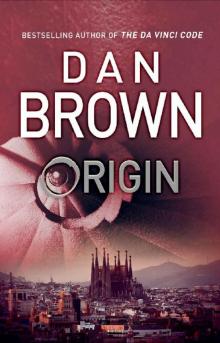 Origin
Origin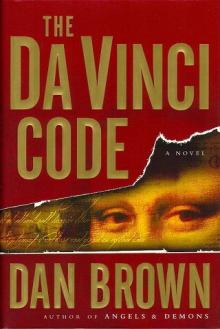 The Da Vinci Code
The Da Vinci Code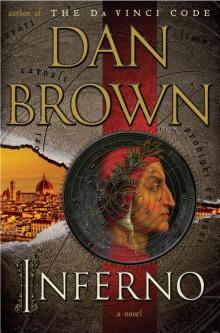 Inferno
Inferno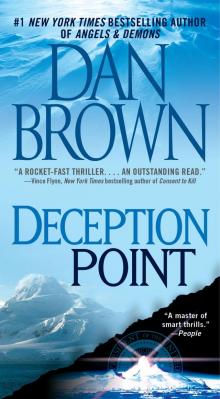 Deception Point
Deception Point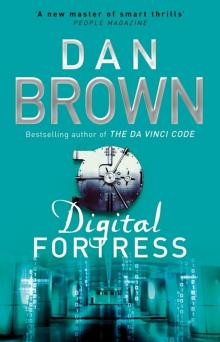 Digital Fortress
Digital Fortress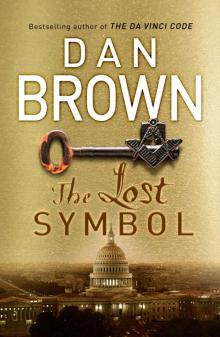 The Lost Symbol
The Lost Symbol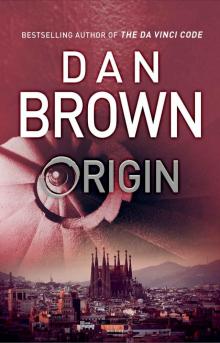 Origin: (Robert Langdon Book 5)
Origin: (Robert Langdon Book 5)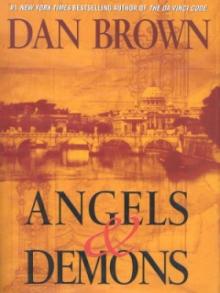 Angles & Demons
Angles & Demons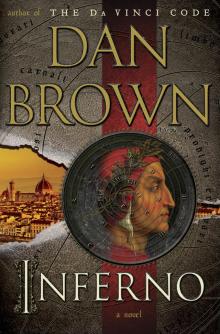 Inferno: A Novel
Inferno: A Novel Angels & Demons rl-1
Angels & Demons rl-1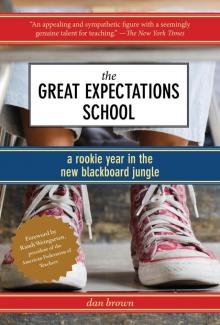 The Great Expectations School
The Great Expectations School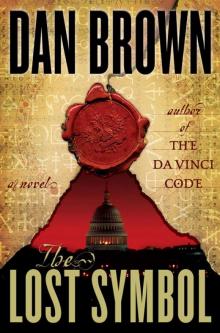 The Lost Symbol rl-3
The Lost Symbol rl-3 Angels and Demons
Angels and Demons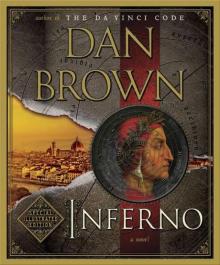 Inferno: Special Illustrated Edition: Featuring Robert Langdon
Inferno: Special Illustrated Edition: Featuring Robert Langdon